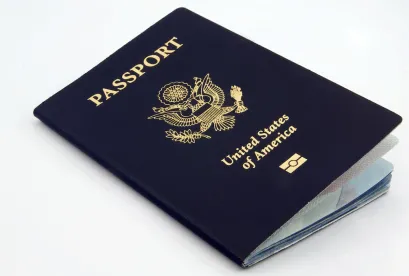With the growing concern about Coronavirus Disease 2019 (“COVID-19” or “coronavirus”) some foreign nationals who live outside the U.S. have decided to fly to the U.S. and wait out the crisis. This article discusses the related visa and immigration issues, and what U.S. Customs and Border Protection requires to admit someone into the U.S.
Flying to the U.S.: Some high net worth individuals that live overseas in the affected areas have elected to use ESTA visa waiver or their B-1/B-2 visitor’s visa to come to the U.S. to “wait out” the virus. Of course this assumes they have been in a “safe” third country for at least 14 days prior to entry. As long as they have sufficient funds to live on without working in the U.S. and they have the intent to return to their home, this is arguably a permissible visitor activity. Of course every application for admission to the U.S. is at the discretion of U.S. Customs and Border Protection (CBP) at the port of entry so there is no 100% guarantee. Travelers arriving at the port of entry may be asked by CBP what is the intent of their visit. They should be truthful and have documents readily available to demonstrate that they have sufficient funds to visit the U.S. without working and proof of their ties to their home country – employment, home ownership, round-trip airplane ticket, etc.
B-1/B-2 Visitor Visa and Extension of Status: Individuals arriving on a B-1/B-2 visitor’s visa will be admitted for up to 6 months, at the discretion of CBP. Should the virus threat continue, then individuals should obtain assistance from counsel on filing an extension of status application with USCIS.
ESTA Visa Waiver Countries: Individuals arriving on ESTA visa waiver can be admitted for up to 90 days, however there is no ability to file an extension of status after an entry on ESTA. The sole option is to depart and re-enter for another 90 days. However, CBP does not like “back-to-back” entries so the individual should be prepared to explain to CBP why they are back so soon, their financial assets, and their ties to their home country.
Check your I-94: Regardless of what the entry stamp says in the passport, foreign nationals entering the U.S. should always check their I-94 on-line for accuracy after each arrival. It is the I-94 which determines how long one may stay in the U.S., not the entry stamp or the visa in the passport. An overstay will invalidate one’s ESTA visa waiver privileges or if they do not have ESTA, it will invalidate their B-1/B-2 visa. To obtain the I-94, click on “Get Most Recent I-94” at: https://i94.cbp.dhs.gov/I94/#/home
Passport: One should always have a passport valid for at least 6 months beyond the intended stay. Otherwise CBP could “short” the I-94.



 />i
/>i

